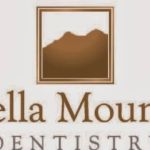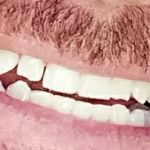Oral Health Tips for Adults
Adults are prone to various oral problems such as cavities, gum disease, tooth loss, and oral cancer. Over 40% of adults have reported experiencing mouth pain within the last year, and more than 80% will have had at least one cavity by the age of 34. To prevent these issues, it's crucial to follow certain guidelines.
Quit Tobacco Use
If you smoke, it's highly recommended to quit. The more you smoke or are exposed to smoke, the higher your risk of developing cancer becomes.
Moderate Alcohol Consumption
Drinking excessive alcohol increases the risk of head and neck cancer. If you drink, do so in moderation to lower this risk.
Get Vaccinated Against HPV
Human papillomavirus (HPV) can infect the mouth and throat and cause cancer. Ask your doctor if you need to be vaccinated against HPV to potentially prevent throat cancer.
Manage Diabetes
If you have diabetes, you may need to have your teeth cleaned multiple times a year. This can help lower your blood sugar level and reduce the risk of other oral health complications, including gum disease.
Prevent Dry Mouth
If your medication causes dry mouth, ask your doctor for an alternative. If that's not possible, drink plenty of water, chew sugarless gum, avoid smoking and using tobacco products, and limit alcohol consumption.
Act on Changes
If you notice sudden changes in taste and smell, talk to your doctor or dentist.
Avoid Unhealthy Foods
Avoid sugary and acidic foods as much as possible as they contribute to oral diseases and other chronic conditions.
Drink Fluoridated Water and Use Fluoride Toothpaste
Drink fluoridated water and brush your teeth with fluoride toothpaste to strengthen your teeth.
Practice Good Oral Hygiene
Brush your teeth thoroughly twice a day and floss between your teeth to remove dental plaque. Use the correct brushing technique and make sure to reach all areas of your mouth.
Wear a Mouthguard
When participating in contact sports or high-risk activities, wear a mouthguard to protect your teeth and gums.
Regular Dental Visits
Visit your dentist at least once a year, even if you wear dentures and have lost some or all of your teeth. Your dentist will check for cancers, oral health problems, and cavities.
Ask for Help
Ask your dentist for other ideas, prescriptions, or supplies to assist you in brushing or flossing effectively to prevent cavities.
Clean Dentures
If you wear dentures, remove them at night and clean them daily to reduce the risk of fungal infections.
Get Assistance if Needed
If you have difficulty brushing or flossing on your own, seek help. There are people who can assist you in maintaining good oral hygiene.
Preventing Oral Diseases in Communities
Good oral health is not only important for individuals but also for the well-being of communities. State and community actions can include increasing access to affordable healthy foods for all ages, supporting quitlines and smokefree environments, providing HPV vaccination resources, permitting oral health providers to perform all permitted dental work, supporting fluoride application in healthcare settings, participating in school dental sealant programs, and adjusting fluoride levels in water.
Importance of Prevention
Preventing oral diseases is crucial for economic and resource reasons. Untreated oral disease results in significant productivity losses and high costs for emergency room visits. Providing dental sealants to children from low-income households can save on dental treatment costs. In areas with too few dental providers, people have poorer oral health over their lifespan.
Oral Hygiene Tips
For optimal oral hygiene, brush your teeth properly using fluoride toothpaste. Angle the brush at a 45-degree angle towards the gumline and use gentle circular motions. Clean between your teeth with floss or other interdental cleaning tools. Flossing helps prevent gum disease. Follow these tips consistently and visit your dentist regularly for a healthy mouth.
Summary
Taking care of your teeth and preventing oral diseases is of utmost importance. By following the tips provided in this article, such as quitting tobacco, moderating alcohol intake, getting vaccinated, managing underlying health conditions, maintaining good oral hygiene practices, and seeking regular dental care, you can significantly reduce the risk of tooth diseases. Additionally, community-level efforts to promote oral health and preventive measures can have a positive impact on overall well-being and save resources. Remember, a healthy smile starts with small, consistent steps towards better oral health.







 Metro Dentalcare Coon Rapids4.0 (492 review)
Metro Dentalcare Coon Rapids4.0 (492 review) Estrella Mountain Dentistry4.0 (645 review)
Estrella Mountain Dentistry4.0 (645 review) Eagle Family Smiles4.0 (286 review)
Eagle Family Smiles4.0 (286 review) Greenberg Dental & Orthodontics4.0 (1278 review)
Greenberg Dental & Orthodontics4.0 (1278 review) McCabe Orthodontics4.0 (14 review)
McCabe Orthodontics4.0 (14 review) Great Expressions Dental Centers - Maple Canyon4.0 (261 review)
Great Expressions Dental Centers - Maple Canyon4.0 (261 review) The Importance of Oral Health Education During Pregnancy for a Healthy Pregnancy
The Importance of Oral Health Education During Pregnancy for a Healthy Pregnancy Best Tips for Brushing Your Teeth Properly for Healthy Gums: Essential Techniques for Oral Health
Best Tips for Brushing Your Teeth Properly for Healthy Gums: Essential Techniques for Oral Health Why Skipping Dental Checkups Can Lead to Bigger Oral Health Problems
Why Skipping Dental Checkups Can Lead to Bigger Oral Health Problems Advantages of Porcelain Dental Restorations
Advantages of Porcelain Dental Restorations How Can Diabetes Cause Tooth and Gum Problems? Preventing and Managing Oral Health Issues
How Can Diabetes Cause Tooth and Gum Problems? Preventing and Managing Oral Health Issues Healthy Habits for Promoting Good Oral Health and Hygiene: Tips for a Healthy Smile
Healthy Habits for Promoting Good Oral Health and Hygiene: Tips for a Healthy Smile